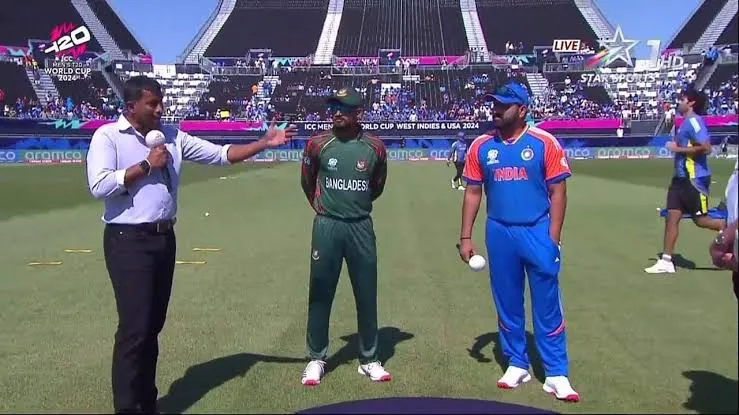Cricket’s fast-paced T20 era has brought about a transformation in how fans engage with the sport. Domestic franchise leagues like the IPL, BBL, PSL, and SA20 have created local heroes and loyal fan communities. Yet, these competitions have remained within national boundaries until now. The WCC T20 (World Club Championship T20) promises to unite champion clubs from different leagues into a single, electrifying global platform. This new competition could mark the beginning of a new era in cricket, one where club rivalries go beyond borders and fandom becomes truly international.
Why Does A Global Club Tournament Matter?
For decades, international cricket has been the heart of the sport, but franchise T20 leagues have reshaped its ecosystem. What the WCC T20 aims to do is to connect these silos by letting the best of each league face one another. Imagine an IPL champion squaring off against a PSL or Big Bash League champion; these are matchups fans have only dreamed about.
Key reasons why this matters:
- It raises the prestige of domestic league titles by giving champions a shot at global dominance.
- Fans worldwide get to experience new rivalries that go beyond national identities.
- It opens fresh commercial opportunities for clubs and sponsors to tap into international markets.
By merging the passion of local supporters with global exposure, WCC T20 can evolve into cricket’s own version of the UEFA Champions League, where every match builds new narratives, and every victory echoes across continents.
How WCC T20 Will Differ From Past Attempts
The Champions League T20, held between 2009 and 2014, was a promising idea that faded due to limited scheduling, poor marketing, and a lack of consistent fan engagement. The WCC T20, however, has learned from that history and plans a far more structured, sustainable approach.
Key differences include:
- Selective Qualification: Only top champions from each major T20 league qualify, ensuring quality competition.
- Global Coordination: Cricket boards like the BCCI and ECB are expected to be actively involved in governance.
- Optimized Scheduling: The tournament will be slotted between league seasons to avoid player conflicts.
- Broader Participation: Leagues from newer cricket regions, including the USA and Canada, may also join.
This structure brings credibility, star power, and financial muscle, three essential ingredients that can make WCC T20 succeed where others failed. With proper timing and consistent branding, it can redefine what “world-class” means in club cricket.
The Mechanics: Qualification, Format, And Participation
The WCC T20’s structure will play a decisive role in shaping how its rivalries grow. As per initial plans, clubs will qualify by winning their domestic leagues, creating an automatic prestige link between national competitions and the world stage.
Likely format highlights:
- Around 8–12 teams representing different nations and leagues.
- Group-stage matches leading to knockout rounds, similar to football’s global cup formats.
- Potential hosting in cricketing hubs like India, the UAE, or South Africa.
This structure means:
- Each game carries massive importance; every win or loss impacts international rankings.
- Clubs gain motivation to invest in deeper squads with global competitiveness.
- Shared ownership across leagues (like the Knight Riders Group) adds intrigue to team selection and fan loyalty.
The WCC T20 isn’t just about cricketing glory; it’s about identity, reputation, and evolution. When clubs meet on neutral ground, the stakes transcend trophies; they touch legacy.
The Fan Experience And Cultural Impact:
Fans form the soul of any sport, and the WCC T20 could redefine how they interact with cricket clubs. For the first time, a Chennai or Karachi fan might see their team face off against a Sydney franchise on neutral turf, creating a truly global fan ecosystem.
What could change for fans:
- Cross-League Support: Global superstars will attract followers across nations, expanding fan communities.
- Cultural Exchange: Matches hosted in different continents will introduce new styles of celebration and cricket culture.
- Expanded Merchandise and Travel: Fans may travel internationally to support their clubs, driving tourism and engagement.
- Digital Fan Wars: Expect social media banter and online rivalries to grow between club communities worldwide.
This evolution transforms cricket fandom into something similar to global football culture, passionate, inclusive, and far-reaching. The WCC T20 will not only entertain but also connect cultures through sport.
Commercial And Strategic Stakes For Clubs:
Behind every fierce rivalry lies strategy, investment, and brand building. For clubs, the WCC T20 represents a commercial goldmine and a long-term branding opportunity. Winning on a global stage means more than just lifting a trophy; it’s about claiming global recognition.
Major advantages for clubs include:
- Revenue Growth: Global broadcasting rights and sponsorships could multiply earnings.
- Player Value: International exposure raises player profiles and market worth.
- Brand Expansion: Merchandise, endorsements, and collaborations across regions enhance visibility.
- Investor Confidence: Global success attracts larger investors and business partnerships.
Strategically, this also means clubs will focus on data analytics, cross-cultural branding, and building globally resonant teams. In this new world of T20 cricket, rivalries will not just be about runs and wickets; they will be about legacy and global dominance.
Regional Rivalry Dynamics In A Global Arena:
One of the most fascinating aspects of the WCC T20 will be how existing regional rivalries evolve once they move to the global stage. The familiar duels between IPL and PSL champions or between Australian and South African franchises will gain new meaning when fought under a world spotlight.

What makes these encounters unique is not just the competition, but the cultural backdrop each team brings to the pitch. When Indian and Pakistani franchises face off, fans across both countries will treat it as more than a match; it will be an emotional moment that revives sporting history.
Similarly, Australian clubs will bring their fearless, aggressive brand of cricket, while Caribbean franchises may infuse flair and entertainment. These distinct styles will give each clash its own narrative. The WCC T20 may thus transform regional competition into a cultural exchange, where every over tells a story of pride, heritage, and ambition.
Cross-League Player Movement And Identity Challenges:
Modern T20 cricket thrives on player mobility, with stars representing multiple leagues across seasons. But this flexibility may create challenges when the same owners run teams in different leagues. For instance, if a player represents Kolkata Knight Riders in the IPL and Trinbago Knight Riders in the CPL, which team will they represent in the WCC T20?
The tournament will likely adopt clear rules:
- Players must represent the team they played for in the winning league.
- Dual ownership franchises will need transparent player allocation policies.
- Players might have to prioritize loyalty to their winning franchise over contractual ties elsewhere.
While this may lead to tough decisions, it also strengthens club identity. Fans want to see familiar faces representing their home club, not just brand connections. This system reinforces the emotional link between player and fan, turning loyalty into a defining part of club legacy.
Potential Threats And Logistical Challenges:
No major global tournament comes without hurdles, and the WCC T20 will have plenty to address before becoming a regular fixture. Scheduling remains the most complex obstacle. With multiple leagues overlapping and international tours packed throughout the year, finding a consistent window is tricky.
Other major concerns include:
- Player Fatigue: With year-round cricket, workload management will be crucial.
- Broadcast Clashes: Competing with other global sports events could impact viewership.
- Sponsorship Overlap: Conflicts between local league sponsors and global partners may arise.
- Travel Logistics: Coordinating teams from various continents involves extensive planning and cost.
However, these issues can be resolved through structured planning and cooperation between boards. If addressed early, the WCC T20 can avoid the pitfalls that doomed earlier global experiments and establish itself as an annual highlight in the cricket calendar.
Legacy Building And Club Recognition:
Legacy is what transforms a good tournament into a timeless one. For cricket clubs, participating in the WCC T20 isn’t just about prize money; it’s about leaving a lasting mark in global history. Much like football’s Champions League winners become legends, WCC T20 champions could define a new hierarchy in the cricketing world.
Clubs that dominate both domestic and global stages will become global brands. Young fans may grow up admiring clubs instead of just national teams, wearing jerseys that represent city pride rather than country borders. Over time, franchise rivalries may even eclipse traditional international ones in fan intensity.
Legacy factors to consider:
- Historic victories create intergenerational loyalty.
- Global exposure builds a narrative beyond regional limitations.
- Each tournament edition contributes to the mythology of modern cricket.
In essence, WCC T20 may redefine success from representing nations to representing excellence on a worldwide stage.
Media Coverage And Global Storytelling:
The media plays a vital role in amplifying the significance of rivalries. The WCC T20 offers storytellers a new playground. Sports journalists, commentators, and digital creators will have fresh narratives to explore a blend of cricketing drama, cultural identity, and international passion.
We may see:
- Documentaries capturing behind-the-scenes journeys of top clubs.
- Fan-driven content from influencers traveling across continents.
- Real-time storytelling through social media platforms, connecting global audiences instantly.
- Statistical innovations tracking global club performances season over season.
As coverage expands, fans will find heroes from unfamiliar teams, and clubs will find supporters in unexpected places. The WCC T20 can evolve from a competition into a global story that unfolds year after year.
The Future Of Club Rivalries Beyond Nations:
The WCC T20’s potential impact goes far beyond cricket. It represents the broader evolution of sports fandom in the 21st century, where borders matter less and passion matters more. Club rivalries will not only depend on where teams come from, but on the spirit they represent. Younger audiences may identify more with clubs than with national teams.

Clubs could sign players based on global marketing appeal, not just performance. Rivalries will be sustained year-round through digital engagement and off-season content. If executed well, this tournament could make cricket’s global club ecosystem as powerful as that of football. The rivalries that emerge here might define an entirely new cricketing generation.
Conclusion:
The WCC T20 holds the promise of being the next great leap in cricket’s evolution. It combines sport, business, culture, and emotion in a way the game has never seen before. By allowing top franchises to compete globally, it creates a stage where identity, rivalry, and passion intersect.
If executed with strategic planning and cultural sensitivity, it could bridge the gap between local loyalty and global recognition, giving cricket the world-class club competition it has long awaited. The WCC T20 might not just redefine rivalries, it could redefine the very meaning of modern cricket.
FAQs:
The vision is to unite top champion clubs from various domestic T20 leagues into a single world tournament, promoting global club competition.
Reports suggest the inaugural WCC T20 could launch in 2026, depending on board approvals and scheduling.
Each league’s champion will automatically qualify, with a few wildcard entries for strong runner-ups from emerging markets.
Organizers plan to schedule the tournament between international windows to ensure top players’ availability.
No, but it will complement them, offering fans a new type of excitement rooted in club pride and global rivalry.
